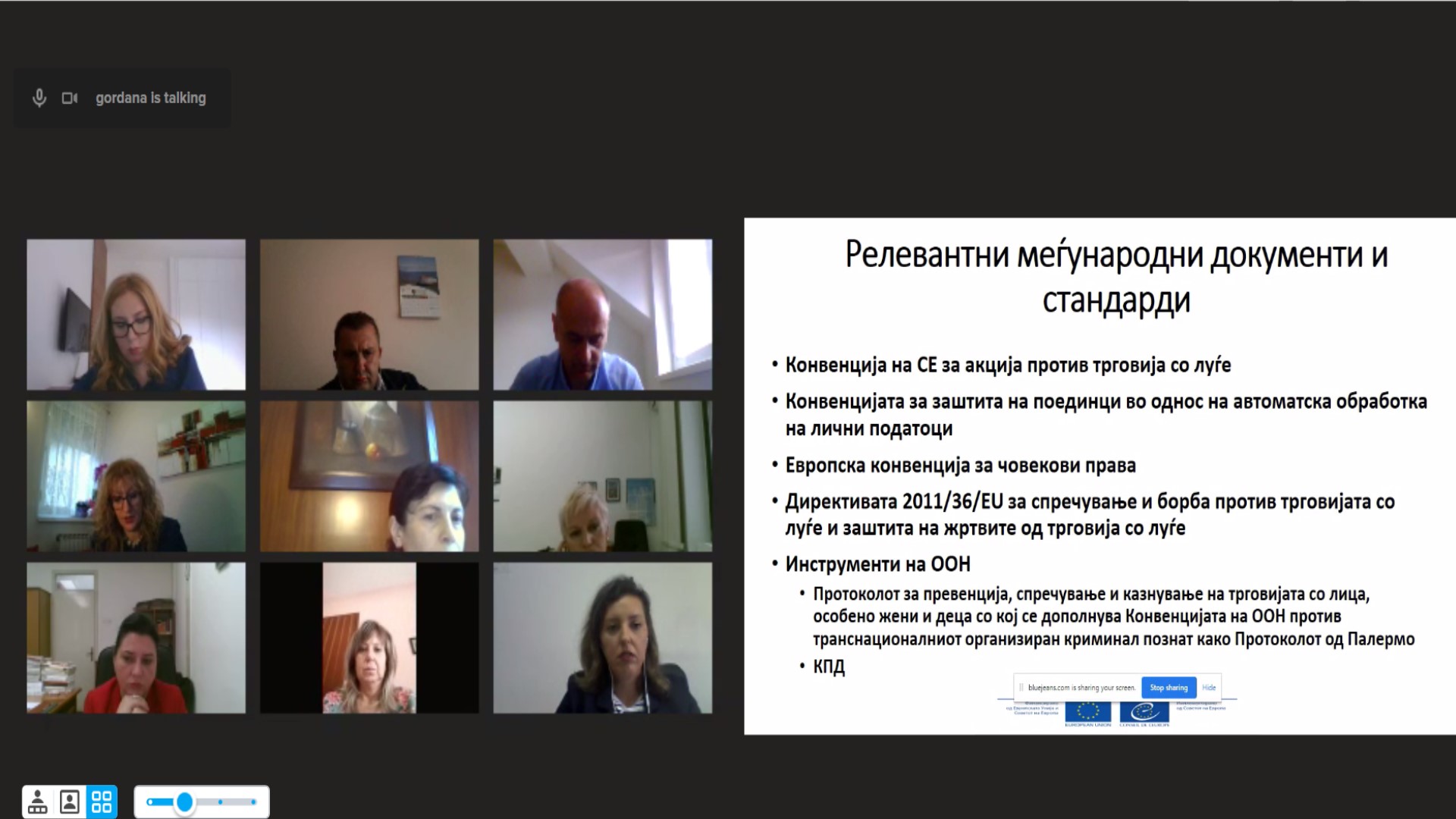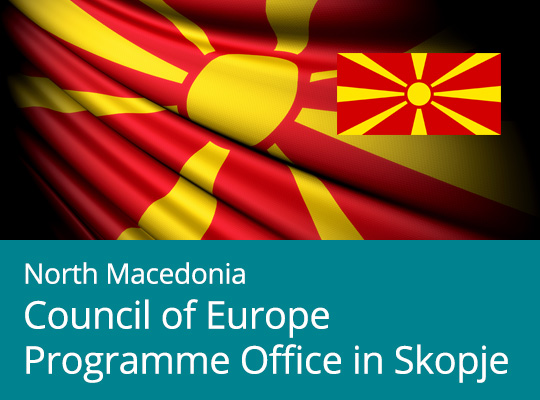Ways to support and improve the position and the rights of victims of human trafficking in judicial proceedings in North Macedonia were shared and discussed with judges, prosecutors, lawyers and criminal investigators currently enrolled in the Human Rights Education Programme (HELP) on trafficking in human beings, implemented in cooperation with the Academy for Judges and Prosecutors and the Bar Association. The discussions were guided based on the results of the policy research on the standing and rights of victims of human trafficking in judicial proceedings, conducted by the joint EU and Council of Europe action on “Preventing and Combating Trafficking in Human Beings in North Macedonia”. The study concludes that there is a need to bring the domestic legislation in compliance with the European standards by introducing important procedural safeguards for child victims of trafficking, providing access to free legal aid, as well as foreseeing measures for protection from secondary victimisation. Moreover, the research considers that courts should impose effective, proportional and dissuasive sanctions on the perpetrators, and that the draft Law on State Compensation for Victims of Violent Crimes should be adopted without further delay.
Improving the standing of victims in judicial proceedings, has been in the focus of the Council of Europe assistance for member states leading to important developments in the legislation and practice of the members. Several conventions, including the Convention on Action against Trafficking in Human Beings, have boosted standards in these area nevertheless the status of victims of human trafficking in criminal and in civil proceedings still requires the attention of the local authorities.
The action on “Preventing and Combating Trafficking in Human Beings in North Macedonia” is part of the joint programme Horizontal Facility for the Western Balkans and Turkey II, funded by the European Union and the Council of Europe and implemented by the Council of Europe.




